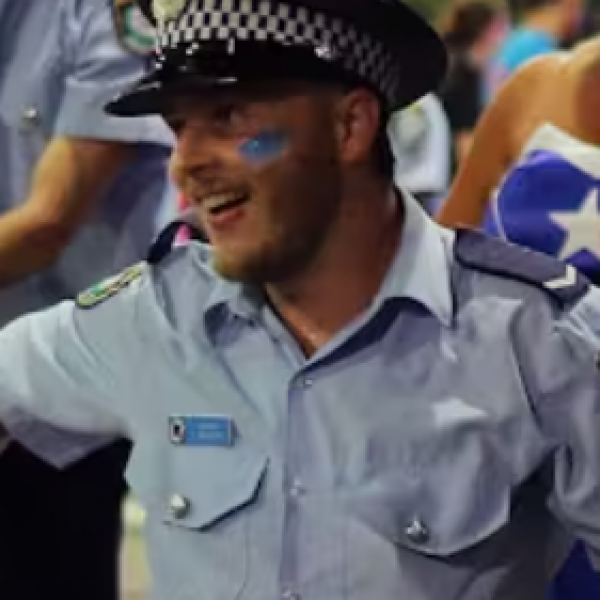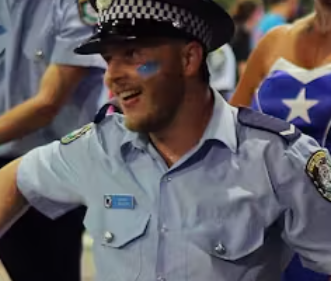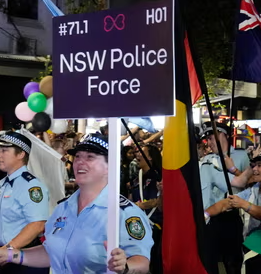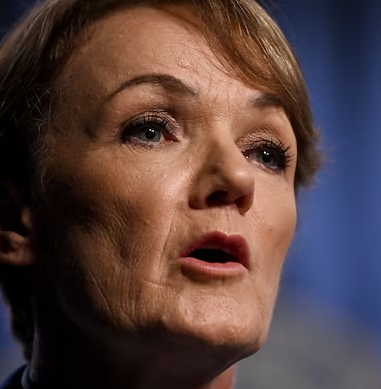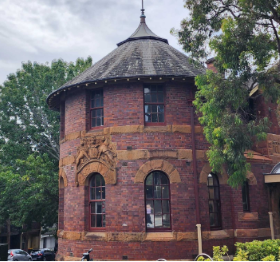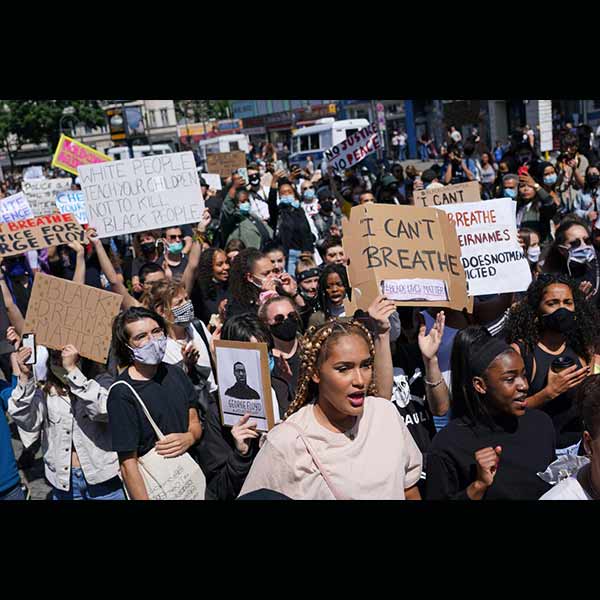
Dr Justin Ellis
Lecturer
School of Law and Justice
- Email:justin.ellis@newcastle.edu.au
- Phone:(02) 4921 5682
Examining the impact of amateur video and social media on police accountability
Dr Justin Ellis is a criminologist studying the impact of digital media technology on crime and criminalisation and how it affects police accountability in cases of police excessive force.

The rapid evolution of digital technology has enabled the public to place the police under more scrutiny than ever before through the simple act of recording police operations via mobile phones. Dr Justin Ellis is a criminologist researching the impact of this increased exposure on everyday crime and police-public relations.
Justin looks at how social media, and amateur video in particular, exposes the ways that people might be criminalised and the role it plays in mitigating or aggravating that process. He said social media has a central and ongoing role to play in providing public institutions with candid assessments of their performance, and as a community organising tool.
“Audience expectations have changed and are driven by what technology has made possible. Institutions such as the police are not always in step with these changes, and effective regulation often lags behind developments in technology.”
Dr Ellis is particularly interested in how the widespread availability of digital video and its direct upload to social media has allowed more public exposure of police excessive force. His PhD involved an in-depth case study of the police excessive force used against Sydney teenager Jamie Jackson at the 2013 Sydney Gay and Lesbian Mardi Gras parade captured on video (trigger warning – violent content).
“This was one of the first viral videos of police excessive force in Australia directly uploaded to YouTube. It had close to 2 million views two weeks after the incident and crossed over into mainstream media reportage. It happened at a time when sharing on social media platforms had reached a critical mass which facilitated the video’s viral reach. It acted as an extremely effective public service announcement and caught the police completely off guard,” Ellis said.
Dr Ellis conducted in-depth interviews with NSW police and former police employees and Sydney LGBT community respondents most closely affected by the video, and analysed media coverage of the cases.
“It is lawful for people to film police in public places but the public didn’t necessarily know that, and unlawful police directions to stop civilian filming of police operations captured in the video implied that some police were ignorant of the lawful right of civilians to film police operations” he said. “The digital era has ushered in a wave of unprecedented exposure and transparency. A counter point to that is that the institutional processes of accountability have not shifted commensurately to what a digital audience might expect.”
“The incident at the 2013 Mardi Gras parade also showed that amateur video of police excessive force can provide the police with a frank assessment of the acceptable limits to the public of police use of force. It also provides police with an opportunity to respond to calls for reassurance, transparency and accountability that might generate greater trust and confidence within communities that have been overpoliced. And the NSW Police Force through a range of policy measures did respond constructively to LGBT community concerns about the policing of Mardi Gras.”
Ellis’ journal article ‘Renegotiating police legitimacy through amateur video and social media: lessons from the police excessive force at the 2013 Sydney Gay and Lesbian Mardi Gras parade’ outlines in more detail how amateur video distributed through social media impacted police-public negotiations on legitimate police use of force in this case.
“Most police will do the right thing, but the ones that don't impact greatly on individuals and the trauma associated with the incidents lives on, as can the reputational damage to the police institution. I see it as part of my role to educate the public of the lawfulness of police actions – teenagers and young people in particular – who are some of the most overpoliced populations as they regularly use public space, often at night, and can be intoxicated and don't necessarily know their rights.”
Exposing hidden costs
It was widely reported that police withdrew the charges against Jackson –
offensive language, resist arrest and assault police – common public order offences that Ellis says belie the impact that these charges can have on vulnerable populations – and the court ruled that the police did use excessive force in Jackson’s arrest, and he was awarded $39,000 in costs. However, Ellis says what the public doesn’t know is what happened to the officer that used excessive force.
“Internal police investigations do not provide the public, and most importantly victims, with enough transparency over the outcomes of such investigations. Civil actions the police settle can provide redress to victims, but once again, the public is none the wiser about the outcomes of these cases.”
“This is because civil actions the police settle are subject to non-disclosure agreements. One way we can get access to that kind of information is through Freedom of Information requests, which I did do as part of my research,” Ellis said.
He discovered that there were a total of four claims arising from the policing of the 2013 Mardi Gras Festival, for which a total of $283,880.75 damages were paid. The amount paid by the State of New South Wales for the legal cost of defending these claims was $385,903.90, so overall, a total cost of $669,784.65 to the state of NSW to settle those four claims.
“We are basing our evaluation of effective and fair policing on very limited information, largely that the police provide, and that the mainstream media report on,” Ellis observed.
“Think about how this money could be better spent in many areas of need, whilst acknowledging the need for due process. We’re all paying the price but we can’t effectively evaluate police assertions of reasonable, necessary and prudent policing in these cases because we can’t easily access that information.”
“Digital technology is an amazing tool of scrutiny, and police are now subject to what I call ‘the social media test’; the characteristics of amateur video and social media exposure of police excessive force that challenge the police version of events and mainstream media’s newsbreaking and agenda-setting capacity. How individual police and police institutions respond to cases of police excessive force determine how trustful the public are in them and their likelihood to report crime. But it stops at the institutional gate and we still do not have access to much of that information, and which the public want to know to be reassured that the police institution is addressing police culture that falls below general public expectations.”
Telling local stories
Ellis has an interdisciplinary background with an undergraduate degree in history, and a Masters and PhD in criminology. He also has a background in communications and media and was working on a law and social justice radio program at the University of Technology Sydney when he interviewed the academic who would become his Masters and PhD supervisor. Ellis’ interviewed journalists about their relationships with the police for his Masters, publishing the findings in this 2016 journal article.
“What underscores all of my work is a deep curiosity and desire to tell people’s stories; putting victims' stories on the public record is particularly rewarding. Not all cases have the benefit of the clarity provided by amateur video that was the case with Jamie Jackson, despite its graphic nature, so sometimes the media is the only way of getting these victim’s voices heard in the public domain.”
“Documenting the impact of digital technology and social media on police public relations is an essential part of the process. We are recording the stories of the local community and the gay and lesbian community. Getting a range of perspectives on record is an important part of the process so we can distil the lessons that need to be learnt,” he said.
“Even though digital technology is driving the globalisation of communication, it’s still local stories that resonate most and help to make sense and meaning of such serious issues as how police use force and how they are held accountable when things go wrong.”
Examining the impact of amateur video and social media on police accountability
Dr Justin Ellis is a criminologist studying the impact of digital media technology on crime and criminalisation and how it affects police accountability in cases of police excessive force.The rapid evolution of digital technology has enabled the public to place…
Career Summary
Biography
This is the text Dr Justin Ellis is a lecturer in Criminology at the University of Newcastle, Australia. His research agenda generates high impact insights into arbitrary harms against vulnerable communities from law enforcement and inadequate legal protections against discrimination: norm formation through digital media technologies (legitimacy, procedural justice and institutional harm); policing (media representation of police excessive force, regulation of vulnerable populations and victimhood); and perceptions of fear of crime, safety, and social cohesion (space and place). His scholarship has been published in high-ranking internationally peer-reviewed journals Criminology and Criminal Justice, Policing and Society, Crime, Media, Culture and the Australian and New Zealand Journal of Criminology. His monograph Policing Legitimacy: Social Media, Scandal and Sexual Citizenship (2021) (Springer) has made a major contribution to examining the impact of bystander video and social media scrutiny of police-civilian relations and the implications for trust and confidence in the police. Justin has over five years’ experience researching and lecturing in Criminology at four universities – the University of Newcastle, the University of Sydney, the University of New South Wales and University of Technology, Sydney. His five years’ in legal affairs journalism in Sydney and close to 10 years living and working in Asia on sexual orientation and gender rights advocacy for Asia region publications provides him with a broad perspective on conduct, relationship and expression rights and how this intersects with notions of crime, deviance and digital technology. Justin has peer reviewed for leading criminology journals New Media and Society, The Australian New Zealand Journal of Criminology, Crime, Media, Culture and is the editor- in-chief of Current Issues in Criminal Justice. Justin is a member of the Australian and New Zealand Society of Criminology, the Sydney Institute of Criminology, and the Centre for Public Integrity.
Qualifications
- Doctor of Philosophy, University of Sydney
- Bachelor of Arts, University of Sydney
- Masters in Criminology, University of Sydney
Keywords
- Communication technology
- Criminology
- LGBTIQ
- accountability
- digital media
- journalism
- legitimacy
- policing
- sousveillance
- vulnerable populations
Fields of Research
| Code | Description | Percentage |
|---|---|---|
| 440216 | Technology, crime and surveillance | 50 |
| 480407 | Law, gender and sexuality (incl. feminist legal scholarship) | 50 |
Professional Experience
UON Appointment
| Title | Organisation / Department |
|---|---|
| Lecturer | University of Newcastle School of Humanities, Creative Ind and Social Sci Australia |
Teaching
| Code | Course | Role | Duration |
|---|---|---|---|
| CRIM3001 |
Criminal Justice Placement College of Human and Social Futures | University of Newcastle |
Co Course Coordinator | 22/7/2019 - 20/12/2019 |
| CRIM3010 |
Crime, Power and the State College of Human and Social Futures, University of Newcastle |
Course Coordinator | 1/2/2021 - 24/7/2021 |
| CRIM2010 |
Media Criminology College of Human and Social Futures | University of Newcastle |
Course Coordinator | 3/2/2020 - 24/7/2020 |
| CRIM1020 |
Victimology College of Human and Social Futures, University of Newcastle |
Course Coordinator | 1/1/0001 - 1/1/0001 |
| CRIM1020 |
Victimology College of Human and Social Futures, University of Newcastle |
Course Coordinator | 13/7/2020 - 21/12/2020 |
| CRIM3001 |
Criminal Justice Placement College of Human and Social Futures, University of Newcastle |
Course Coordinator | 5/7/2021 - 17/12/2021 |
| CRIM3010 |
Crime, Power and the State College of Human and Social Futures | University of Newcastle |
Course Coordinator | 3/2/2020 - 24/7/2020 |
| CRIM2010 |
Media Criminology University of Newcastle |
Course Coordinator | 1/2/2021 - 24/7/2021 |
| CRIM1020 |
Victimology College of Human and Social Futures, University of Newcastle |
Course Coordinator | 22/7/2019 - 20/12/2019 |
Publications
For publications that are currently unpublished or in-press, details are shown in italics.
Book (2 outputs)
| Year | Citation | Altmetrics | Link | ||
|---|---|---|---|---|---|
| 2023 |
Ellis J, Representation, Resistance and the Digiqueer Fighting for Recognition in Technocratic Times, Policy Press, Bristol, UK, 173 (2023) [A1]
|
Nova | |||
| 2021 |
Ellis JR, Policing Legitimacy: Social Media, Scandal and Sexual Citizenship, Springer Nature, Cham, Switzerland, 169 (2021) [A1]
|
Nova |
Chapter (2 outputs)
| Year | Citation | Altmetrics | Link | |||||
|---|---|---|---|---|---|---|---|---|
| 2022 |
Ellis J, 'Blurred Consent and Redistributed Privacy: Owning LGBTQ Identity in Surveillance Capitalism', Diversity in Criminology and Criminal Justice Studies, Emerald Publishing, Bingley, UK 183-196 (2022) [B1]
|
Nova | ||||||
| 2017 |
Lee M, Ellis JR, 'Qualifying fear of crime: multi-methods approaches', The Routledge International Handbook on Fear of Crime, Taylor and Francis, Oxford, UK 155-169 (2017) [B1]
|
|||||||
Journal article (15 outputs)
| Year | Citation | Altmetrics | Link | ||||||||
|---|---|---|---|---|---|---|---|---|---|---|---|
| 2024 |
Berezowski V, Moffat I, Seckiner D, Crebert I, Ellis J, Mallett X, 'The suitability of using domestic pigs (Sus spp.) as human proxies in the geophysical detection of clandestine graves.', J Forensic Sci, 69 316-328 (2024) [C1]
|
Nova | |||||||||
| 2023 |
Berezowski V, Mallett X, Crebert I, Seckiner D, Ellis J, Moffat I, 'A technical protocol for using ground penetrating radar and electrical resistivity tomography in the search for covert graves', AUSTRALIAN JOURNAL OF FORENSIC SCIENCES,
|
||||||||||
| 2023 |
Ellis JR, 'Social media, police excessive force and the limits of outrage: Evaluating models of police scandal', Criminology and Criminal Justice, 23 117-134 (2023) [C1] Recent criminological research has developed a processual conceptualisation of scandal to analyse policing and criminal justice transgression and its attempted management. Through... [more] Recent criminological research has developed a processual conceptualisation of scandal to analyse policing and criminal justice transgression and its attempted management. Through media content analysis and in-depth interviews with police and non-police respondents, this article applies criminological theories of scandal to a case of bystander-filmed police excessive force at the 2013 Sydney Gay and Lesbian Mardi Gras parade and uploaded to YouTube. The article renders scandal more complex than existing models, emphasising outrage and surprise in cases of bystander social media police scandals involving police excessive force, in conjunction with Mawby¿s processual model. However, it argues that despite the mobilising force of outrage through social media, police capture of police complaint mechanisms and political opportunism can normalise police transgression and blur lines of responsibility. Individual transgressions can be linked to a macro, ¿chronic¿ scandal of police excessive force, diminishing scandal¿s conceptual and practical purchase as a police accountability lever.
|
Nova | |||||||||
| 2023 |
Berezowski V, MacGregor D, Ellis J, Moffat I, Mallett X, 'More than an Offender Location Tool: Geographic Profiling and Body Deposition Sites', Journal of Police and Criminal Psychology, 38 3-19 (2023) [C1] In homicide cases, it is difficult to provide resolution for the bereaved or to obtain a successful criminal conviction of the guilty party when no body is found. Since the mid-ni... [more] In homicide cases, it is difficult to provide resolution for the bereaved or to obtain a successful criminal conviction of the guilty party when no body is found. Since the mid-nineteenth century, geographic and environmental patterns have been used to better understand the relationship between crime and its environment. Now known as geographic profiling, practitioners in this field amalgamate criminological, psychological, and geographical knowledge, as well as aspects of mathematics, statistics, and physics to identify spatial patterns associated with criminal behaviour as a means of locating anchor points of an offender (where they live, or work). The same techniques can also be used to locate the covert body deposition sites of their victims. This paper aims to (1) provide a brief summary of criminal behaviour and the environment and how understanding their relationship can be helpful to geographic profiling, (2) amalgamate the available literature on the application of geographic profiling in locating clandestine graves (as most documented uses are to locate offender residences), and (3) include a geographic profile of Ivan Milat, an Australian serial killer (officially) active from 1989 to 1992, demonstrating how geographic profiling techniques can help to identify additional victims and potential body deposition sites. The information in this review will be helpful to law enforcement and practitioners to improve missing persons investigations and searches for clandestine graves.
|
Nova | |||||||||
| 2022 |
Berezowski V, Moffat I, Shendryk Y, MacGregor D, Ellis J, Mallett X, 'A multidisciplinary approach to locating clandestine gravesites in cold cases: Combining geographic profiling, LiDAR, and near surface geophysics.', Forensic Science International: Synergy, 5 (2022) [C1]
|
Nova | |||||||||
| 2022 |
R Ellis J, 'A Fairy Tale Gone Wrong: Social media, Recursive Hate and the Politicisation of Drag Queen Storytime', The Journal of Criminal Law, 86 94-108 (2022) [C1]
|
||||||||||
| 2022 |
Lee M, Ellis JR, Keel C, Wickes R, Jackson J, 'When Law-And-Order Politics Fail: Media Fragmentation and Protective Factors That Limit the Politics of Fear', The British Journal of Criminology, 62 1270-1288 (2022) [C1]
|
Nova | |||||||||
| 2021 |
Ellis JR, 'More than a trivial pursuit: Public order policing narratives and the 'social media test'', CRIME MEDIA CULTURE, 17 185-207 (2021) [C1]
|
Nova | |||||||||
| 2021 |
Berezowski V, Mallett X, Ellis J, Moffat I, 'Using Ground Penetrating Radar and Resistivity Methods to Locate Unmarked Graves: A Review', REMOTE SENSING, 13 (2021) [C1]
|
Nova | |||||||||
| 2021 |
Lee M, Jackson J, Ellis JR, 'Everyday Aesthetics, Space, and the Sensory: Fear of Crime and Affect in Inner Sydney', Journal of Qualitative Criminal Justice & Criminology, 10 1-25 (2021) [C1]
|
Nova | |||||||||
| 2020 |
Ellis J, Jackson J, Lee M, 'Functional and dysfunctional fear of crime in inner Sydney: findings from the quantitative component of a mixed-methods study', Australian and New Zealand Journal of Criminology, 53 311-332 (2020) [C1]
|
Nova | |||||||||
| 2019 |
Ellis J, 'Renegotiating police legitimacy through amateur video and social media: lessons from the police excessive force at the 2013 Sydney Gay and Lesbian Mardi Gras parade', Current Issues in Criminal Justice, 31 412-432 (2019) [C1] This article examines the impact of digital media technologies on police-lesbian, gay, bisexual, transgender, intersex and queer (LGBTIQ) community relations in Sydney through a v... [more] This article examines the impact of digital media technologies on police-lesbian, gay, bisexual, transgender, intersex and queer (LGBTIQ) community relations in Sydney through a viral video of police excessive force filmed after the 2013 Sydney Gay and Lesbian Mardi Gras parade. Critical media analysis, and 15 in-depth interviews with police and non-police respondents directly affected by the video, make an in-depth, qualitative contribution to legitimacy and procedural justice studies on the impact of digital technologies on LGBTIQ community trust in police. The findings emphasise the capacity of amateur video of police excessive force publicised directly through social media to pressure the police to account, to catalyse LGBTIQ community responses and to negotiate through online fora legitimate boundaries of police practice. Exposure through social media can pressure the police to justify police transgression in real time; a form of ¿dynamic¿ legitimacy requiring continuous and detailed justification of police practice that can exhaust standard police responses through a potentially infinite claim-response dialogue. Despite revision of policing practices at Mardi Gras since 2013, ongoing discrepancies between police understanding and public perceptions of a range of police tactics, including use of force, emphasise the continued importance of dialogue between police and LGBTIQ communities.
|
Nova | |||||||||
| 2018 |
Clancey G, Monchuk L, Anderson J, Ellis J, 'Lost in implementation: NSW police force crime prevention officer perspectives on crime prevention through environmental design', Crime Prevention and Community Safety, 20 139-153 (2018) [C1] Crime prevention through environmental design (CPTED) is practiced by various professions and agencies in many jurisdictions. The role police play in CPTED has received limited sc... [more] Crime prevention through environmental design (CPTED) is practiced by various professions and agencies in many jurisdictions. The role police play in CPTED has received limited scrutiny from academics within Australia (and other countries). This article makes an important contribution to addressing this gap in the literature through providing New South Wales Police Force Crime Prevention Officers (CPOs) perspectives on their role in reviewing council development applications from a CPTED perspective. Findings show police-council relations vary considerably. Some police-council areas have clear policies in place to enable police to contribute to reviewing crime risks of development applications, whilst others do not. Many police feel their engagement in the planning and development process is often tokenistic, receiving limited feedback from councils about their recommendations. For these police, they see little ongoing relevance of reviewing development applications. If police are to remain involved, there is a need to develop clearer parameters of how police will contribute and what they can realistically be expected to contribute to this process.
|
||||||||||
| 2016 |
Ellis J, McGovern A, 'The end of symbiosis? Australia police media relations in the digital age', Policing and Society, 26 944-962 (2016) [C1] As the police move further into areas of traditional journalistic practice, the ¿unhappy marriage¿ between the police and the media becomes more complex. To what extent this symbi... [more] As the police move further into areas of traditional journalistic practice, the ¿unhappy marriage¿ between the police and the media becomes more complex. To what extent this symbiotic relationship has allowed for transparency has varied over time, subject to political, operational and technological change. While acknowledging the police premium on access to information, this relationship is further challenged by police oversight bodies, the spread of corporate mangerialism and media decentralisation. Through qualitative interviews with Australian police, crime, court and investigative journalists, we provide a fresh perspective on this relationship from the journalists' point of view. In particular we explore the impact of digital media, social media and mobile technology on this relationship integral to maintaining public confidence in the police. This research serves as the basis for further interrogation into police perceptions of the role of the media and how an increasingly mediated public sphere is influencing public confidence in the police.
|
||||||||||
| Show 12 more journal articles | |||||||||||
Review (3 outputs)
| Year | Citation | Altmetrics | Link | ||
|---|---|---|---|---|---|
| 2022 |
Ellis J, 'Crime and investigative reporting in the UK (2022)
|
||||
| 2022 |
Ellis J, 'Leanne Weber, Jarrett Blaustein, Kathryn Benier, Rebecca Wickes and Diana Johns (2021) Place, Race and Politics: The Anatomy of a Law and Order Crisis (2022)
|
||||
| 2020 |
Ellis JR, 'Queer histories and the politics of policing', Current Issues in Criminal Justice (2020)
|
Grants and Funding
Summary
| Number of grants | 17 |
|---|---|
| Total funding | $200,508 |
Click on a grant title below to expand the full details for that specific grant.
20233 grants / $83,027
Evaluation of the Community Disability Alliance Hunter (CDAH) Disability Cooperative (DisCo) Program Pilot$68,198
Funding body: Private Philanthropy
| Funding body | Private Philanthropy |
|---|---|
| Scheme | Private Philanthropy |
| Role | Lead |
| Funding Start | 2023 |
| Funding Finish | 2025 |
| GNo | |
| Type Of Funding | C3120 - Aust Philanthropy |
| Category | 3120 |
| UON | N |
LGBTQ engagement with hybrid spaces in Newcastle: perspectives on consent, safety and expression$10,000
Funding body: College of Human and Social Futures | University of Newcastle
| Funding body | College of Human and Social Futures | University of Newcastle |
|---|---|
| Project Team | Justin Ellis (Lead) David Betts (CoInvestigator) Jane Goodman-Delahunty (CoInvestigator) |
| Scheme | CHSF - Pilot Research Scheme: Projects, Pivots, Partnerships |
| Role | Lead |
| Funding Start | 2023 |
| Funding Finish | 2023 |
| GNo | |
| Type Of Funding | Internal |
| Category | INTE |
| UON | N |
Quantifying LGBTQ+ perceptions of safety and fear of crime within the hybrid media ecosystem of old and newer digital media logics $4,829
Funding body: University of Newcastle
| Funding body | University of Newcastle |
|---|---|
| Project Team | Doctor Justin Ellis, Professor Jon Jackson |
| Scheme | Pilot Funding Scheme |
| Role | Lead |
| Funding Start | 2023 |
| Funding Finish | 2023 |
| GNo | G2300475 |
| Type Of Funding | Internal |
| Category | INTE |
| UON | Y |
20222 grants / $12,500
Mapping place and (co)use of public spaces in Newcastle by diverse groups for social organising and cohesion$10,000
Funding body: Janet Copley Bequest
| Funding body | Janet Copley Bequest |
|---|---|
| Project Team | Dr David Betts |
| Scheme | Copley Bequest - Research Fund |
| Role | Investigator |
| Funding Start | 2022 |
| Funding Finish | 2022 |
| GNo | |
| Type Of Funding | C3300 – Aust Philanthropy |
| Category | 3300 |
| UON | N |
Research Output Scheme Funding$2,500
Funding body: College of Human and Social Futures | University of Newcastle
| Funding body | College of Human and Social Futures | University of Newcastle |
|---|---|
| Scheme | CHSF - Research Output Scheme |
| Role | Lead |
| Funding Start | 2022 |
| Funding Finish | 2022 |
| GNo | |
| Type Of Funding | Internal |
| Category | INTE |
| UON | N |
20214 grants / $17,010
Vulnerable workers in the Hunter region$8,250
Funding body: Australian Catholic Religious Against Trafficking in Humans
| Funding body | Australian Catholic Religious Against Trafficking in Humans |
|---|---|
| Project Team | Doctor Justin Ellis, Sister Lorraine Phelan |
| Scheme | Research Grant |
| Role | Lead |
| Funding Start | 2021 |
| Funding Finish | 2022 |
| GNo | G2100374 |
| Type Of Funding | C3200 – Aust Not-for Profit |
| Category | 3200 |
| UON | Y |
Toxic masculinity, partisanship and the politics of violence$5,000
Funding body: College of Human and Social Futures, University of Newcastle
| Funding body | College of Human and Social Futures, University of Newcastle |
|---|---|
| Project Team | Dr Justin Ellis |
| Scheme | 2021 Strategic Network and Pilot Project (SNaPP) Scheme |
| Role | Lead |
| Funding Start | 2021 |
| Funding Finish | 2021 |
| GNo | |
| Type Of Funding | Internal |
| Category | INTE |
| UON | N |
Research Output Scheme Funding$2,500
Funding body: College of Human and Social Futures, University of Newcastle
| Funding body | College of Human and Social Futures, University of Newcastle |
|---|---|
| Scheme | 2021 CHSF Research Output Scheme |
| Role | Lead |
| Funding Start | 2021 |
| Funding Finish | 2021 |
| GNo | |
| Type Of Funding | Internal |
| Category | INTE |
| UON | N |
CHSF Early Advice Scheme 2021$1,260
Funding body: College of Human and Social Futures | University of Newcastle
| Funding body | College of Human and Social Futures | University of Newcastle |
|---|---|
| Scheme | CHSF - Early Advice Scheme |
| Role | Lead |
| Funding Start | 2021 |
| Funding Finish | 2021 |
| GNo | |
| Type Of Funding | Internal |
| Category | INTE |
| UON | N |
20205 grants / $46,500
Faculty funding for external engagement in 2020 - Centre for 21st Century Humanities$20,000
Funding body: Faculty of Education and Arts, University of Newcastle
| Funding body | Faculty of Education and Arts, University of Newcastle |
|---|---|
| Project Team | Dr J McIntyre (Director); Dr K Ariotti; A/Profr G Arrighi; Dr H Askland; Dr J Coffey; A/Prof N Cushing; E/Prof H Craig; Dr J Ellis et al. |
| Scheme | Faculty funding |
| Role | Investigator |
| Funding Start | 2020 |
| Funding Finish | 2020 |
| GNo | |
| Type Of Funding | Internal |
| Category | INTE |
| UON | N |
Institutional Intervention in Queer Lives: Historical to Contemporary Paradigms$12,000
Funding body: Faculty of Education and Arts, University of Newcastle
| Funding body | Faculty of Education and Arts, University of Newcastle |
|---|---|
| Project Team | Dr David Betts (Lead), Dr James Bennett and Dr Justin Ellis |
| Scheme | Strategic Network and Pilot Project Grants Scheme |
| Role | Investigator |
| Funding Start | 2020 |
| Funding Finish | 2020 |
| GNo | |
| Type Of Funding | Internal |
| Category | INTE |
| UON | N |
Policing perversion: surveilling queer Newcastle 1950-1980$10,000
Funding body: Janet Copley Bequest
| Funding body | Janet Copley Bequest |
|---|---|
| Project Team | Dr Justin Ellis and Dr Kate Senior |
| Scheme | Copley Bequest - Research Fund |
| Role | Lead |
| Funding Start | 2020 |
| Funding Finish | 2021 |
| GNo | |
| Type Of Funding | C3120 - Aust Philanthropy |
| Category | 3120 |
| UON | N |
2020 FEDUA 'Finish that Output' scheme funding$2,500
Funding body: Faculty of Education and Arts, University of Newcastle
| Funding body | Faculty of Education and Arts, University of Newcastle |
|---|---|
| Project Team | De Justin Ellis |
| Scheme | FEDUA 'Finish that Output' scheme |
| Role | Lead |
| Funding Start | 2020 |
| Funding Finish | 2020 |
| GNo | |
| Type Of Funding | Internal |
| Category | INTE |
| UON | N |
Faculty of Education and Arts New Start Grant$2,000
Funding body: Faculty of Education and Arts, University of Newcastle
| Funding body | Faculty of Education and Arts, University of Newcastle |
|---|---|
| Scheme | New Start Grants |
| Role | Lead |
| Funding Start | 2020 |
| Funding Finish | 2020 |
| GNo | |
| Type Of Funding | Internal |
| Category | INTE |
| UON | N |
20193 grants / $41,471
Perceptions of Safety and Fear of Crime in Liverpool$36,971
Funding body: The university of Sydney
| Funding body | The university of Sydney |
|---|---|
| Project Team | Professor Murray Lee, Dr Justin Ellis |
| Scheme | Perceptions of safety and fear of crime in Liverpool |
| Role | Investigator |
| Funding Start | 2019 |
| Funding Finish | 2019 |
| GNo | |
| Type Of Funding | External |
| Category | EXTE |
| UON | N |
Faculty of Education and Arts New Start Grant$3,000
Funding body: School of Humanities and Social Science - Faculty of Education and Arts - The University of Newcastle
| Funding body | School of Humanities and Social Science - Faculty of Education and Arts - The University of Newcastle |
|---|---|
| Project Team | Dr Justin Ellis |
| Scheme | Faculty Scheme |
| Role | Lead |
| Funding Start | 2019 |
| Funding Finish | 2019 |
| GNo | |
| Type Of Funding | Internal |
| Category | INTE |
| UON | N |
Australian and New Zealand Society of Criminology, Perth, 10 - 13 December 2019$1,500
Funding body: Faculty of Education and Arts, University of Newcastle
| Funding body | Faculty of Education and Arts, University of Newcastle |
|---|---|
| Scheme | FEDUA Conference Travel Grant |
| Role | Lead |
| Funding Start | 2019 |
| Funding Finish | 2019 |
| GNo | |
| Type Of Funding | Internal |
| Category | INTE |
| UON | N |
Research Supervision
Number of supervisions
Current Supervision
| Commenced | Level of Study | Research Title | Program | Supervisor Type |
|---|---|---|---|---|
| 2023 | PhD | Beyond Crisis Responses – Sustainable Housing Solutions for Women Experiencing Domestic and Family Violence in the Hunter Region, New South Wales | PhD (Law), College of Human and Social Futures, The University of Newcastle | Principal Supervisor |
| 2022 | Masters | Marijuana Drug Policy Reform in Australia: Are Australians Ready for Drug Reform? | M Philosophy (Sociol & Anthro), College of Human and Social Futures, The University of Newcastle | Co-Supervisor |
Past Supervision
| Year | Level of Study | Research Title | Program | Supervisor Type |
|---|---|---|---|---|
| 2024 | PhD | The Application of Ground Penetrating Radar and Electrical Resistivity Tomography to Clandestine Gravesite Discovery: A Comparative Analysis | PhD (Law), College of Human and Social Futures, The University of Newcastle | Co-Supervisor |
News
News • 1 Mar 2024
The policing of LGBTQI+ people casts a long, dark shadow. Marching at Mardi Gras must be backed up with real change
Public trust and confidence in NSW Police has been sorely tested in the past two weeks. The charging of a police officer with the murders of a Sydney gay couple, Jesse Baird and Luke Davies, has seen shock turn to grief and then anger.
News • 28 Feb 2024
A lot of Hurt and Anger: How the Queer Community Feels Let Down by NSW Police
Despite a 26-year tradition of officers marching at Mardi Gras, the Paddington alleged murders have brought growing discontent with the force to a head
News • 27 Feb 2024
Bodies found in NSW Investigation
There's been a breakthrough in the investigation of the alleged murders of Sydney couple Luke Davies and Jesse Baird. Police have recovered two bodies from a property in rural New South Wales. Meanwhile, debate continues over whether NSW Police should be allowed to march in Mardi Gras.
News • 24 Feb 2024
It's here, it's Queer: Sydney's landmark new LGBTQIA+ history museum is now open
Qtopia Sydney has transformed a former police station in Darlinghurst for the world’s largest centre for Queer history and culture.
News • 14 Nov 2023
Shining a light on injustice: how an inquiry fought for LGBTIQ recognition
The New South Wales Special Commission of Inquiry into LGBTIQ hate crimes has held its final public sitting in Sydney today.
News • 26 Jun 2023
Representation, Resistance and the Digiqueer
Dr Justin Ellis new book ‘Representation, Resistance and the Digiqueer - Fighting for Recognition in Technocratic Times’ is now available.
News • 16 May 2023
Our hybrid media system has emboldened anti-LGBTQ+ hate - what can we do about it?
Anti-LGBTQ+ hate from religious conservatives and far-right extremists in the United States, and now in Australia, is a worrying trend.
News • 21 Nov 2022
Exploitation of migrant workers highlights systemic issue across Australia
Migrants and refugees currently working in the Hunter region face a range of complex challenges, including wage theft.
News • 7 Apr 2022
A Fairy Tale Gone Wrong: the Politicisation of Drag Queen Storytime
New research has found that Drag Queen Storytime (DQS) childhood literacy events at public libraries and bookshops in the USA and Australia between 2018 and 2020 became sites of networked online and offline hate by anti-LGBTQ groups.
News • 28 Apr 2021
Queer Newcastle in the '50s to '80s – Your experience counts
Researchers at the University of Newcastle are seeking to uncover some of the hidden histories of relations between members of the LGBTQ+ community and police between 1950 and 1980.
News • 4 Jun 2020
Criminology expert in police accountability comments on George Floyd case
The tragic death of George Floyd on 25 May has once again emphasised the significance of bystander video distributed through social media as a police accountability mechanism, says University of Newcastle Criminologist, Dr Justin Ellis.
News • 11 May 2020
Research highlights importance of collective efficacy in mitigating community fears
Criminologist from the University of Newcastle, Dr Justin Ellis has recently published a co-authored journal article into the level of fear of crime in inner city Sydney, with Professor Murray Lee at the Sydney Law School and Professor Jonathan Jackson at the London School of Economics.
News • 18 Feb 2020
FOI Reveals Cost of 2013 Policing of Mardi Gras Festival
As the annual Sydney Gay and Lesbian Mardi Gras begins this week, University of Newcastle criminologist, Dr Justin Ellis, reflects on the cost of the controversial policing of the 2013 Sydney Gay and Lesbian Mardi Gras Festival.
News • 14 Feb 2020
History of Gay and Lesbian Rights Features in Waiting for Equality Exhibition
The University of Newcastle’s criminology program has contributed to the Waiting for Equality Exhibition currently on display at Watt Space Gallery until March 4.
Dr Justin Ellis
Position
Lecturer
School of Humanities and Social Science
School of Law and Justice
College of Human and Social Futures
Contact Details
| justin.ellis@newcastle.edu.au | |
| Phone | (02) 4921 5682 |
Office
| Room | MCG.35. |
|---|---|
| Location | Callaghan University Drive Callaghan, NSW 2308 Australia |

